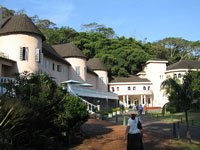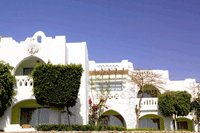South Africa
The biggest gambling market in Africa is South Africa and although horse racing goes back many years, casinos are a recent attraction -- really only taking off in the last 25 years and leading to rapid expansion of larger casinos throughout the continent.
Casinos in South Africa, as we know them, had an interesting start as gambling proper was prohibited in the 1965 Gambling Act. However the Leaders of Transkei, Boprthutaswana, Ciskei and Venda legalised Casinos in their territories. Initially, two companies, Holiday Inn and Southern Sun (a subsidiary of South Africa Breweries) negotiated Casino contracts with Bantustan Government. Then in 1983, Mr Sol Kerzner, a former minority shareholder in Southern Sun Hotels, founded a new and dynamic company, Sun International. By the early 1990s, Sun possessed all 18 homeland licenses, after Mr. Kerzner and local leaders agreed to a high taxation on casino profits in return. As well as securing a monopoly for his company, he also secured self regulating powers on the casino operations and the fact that the local governments had little capital to effectively monitor and audit the casino operations was obviously a major factor in the arrangements. Sun brought in the majority of their staff from Europe, local staff only rose to higher rankings much later. Much of the income from the territories was channelled elsewhere, and Sun spread the casino culture to neighbouring Countries such as Zimbabwe, Zambia, Botswana, Namibia, Lesotho, Swaziland and as far away as Mauritius.
North Africa
Gambling on Thoroughbreds dates back in North Africa to early as the late 1600’s and all modern Thoroughbreds have as common ancestors one or more of 3 stallions which came from North Africa and the Middle East.
East & West Africa
Gambling started earlier in some countries of Eastern and Western Africa, than in South Africa, but has not developed to date to the level of resorts like Sun City. Places like Gabon, Cameroon, and Nigeria have had casinos for 50 years or more. On the West Africa side, gaming in Kenya casinos date back to the pre 1950’s and further North in Egypt.
Poker
Poker is no stranger in Africa due to South Africa, although only in the last 10 years, regularly hosting national poker tournaments and other poker related events. Major poker tournaments were held recently in Morocco, Egypt, Tunisia and RSA. South Africans now have their own poker association. Poker in Africa came late but is growing rapidly.
Pari-mutuel
Horse racing is a hugely popular sport in South Africa, with regular racing taking place around the country. The sport in South Africa enjoys a long and rich history that can be traced back to 1797! The first recorded race club meeting took place five years later in 1802. The national horse racing body is known as the National Horse Racing Authority and previously operated under the name of The Jockey Club of South Africa. It was founded in 1882. Gambling on horses occurs in many African countries however no other country has full blown race tracks such as South Africa's.
Gambling on Thoroughbreds dates back in North Africa to early as the late 1600’s and all modern Thoroughbreds have as common ancestors one or more of 3 stallions which came from North Africa and the Middle East.
Greyhounds and their significance on the African continent date back to ancient Egyptian times, but the only regulated greyhound racing is in South Africa, which has many tracks and its own large association.



























